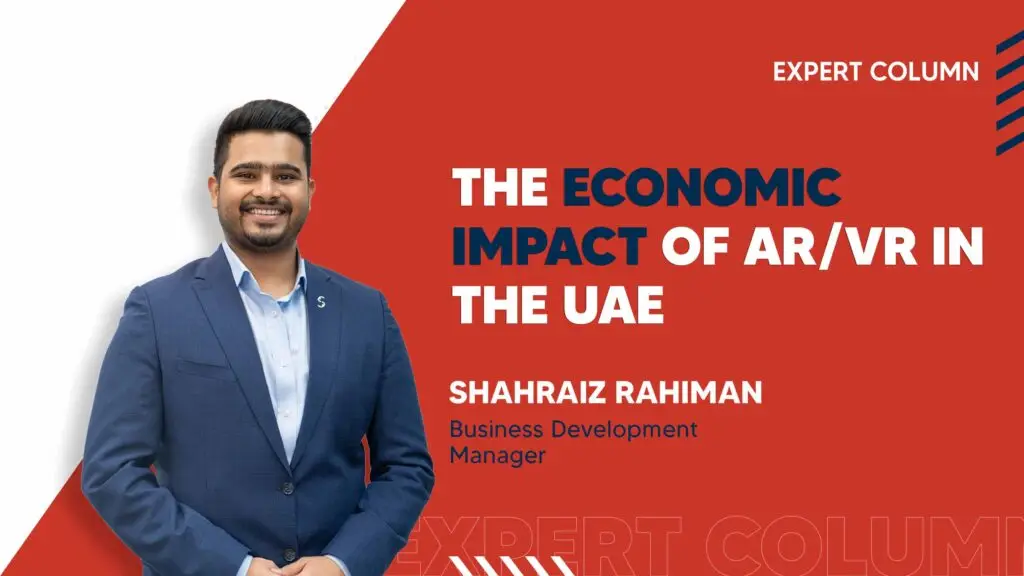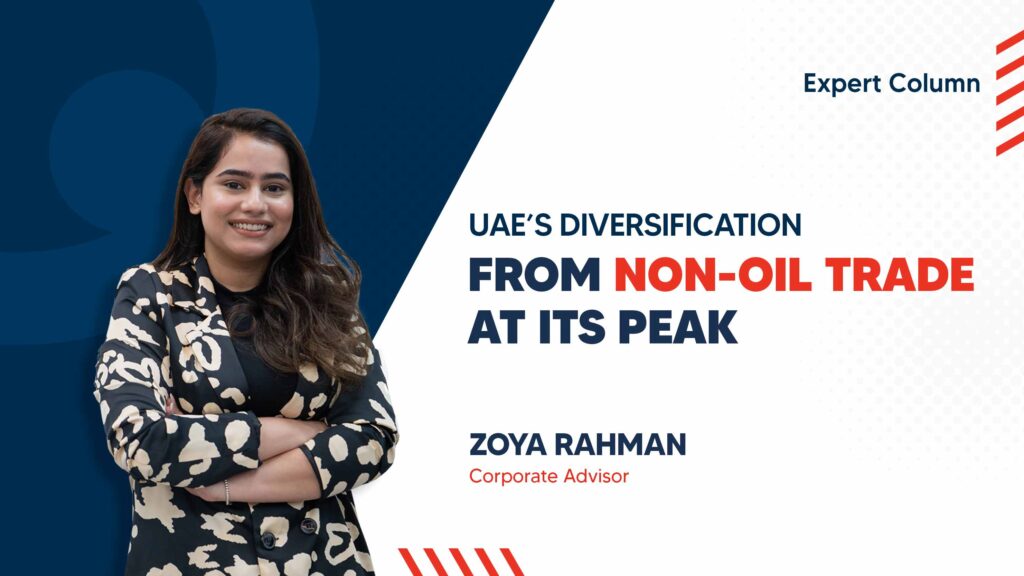The United Arab Emirates is a country famous for its commitment to integrating futuristic technology in the daily lives of its people. This is where the implementation of augmented/virtual reality can impact the economy directly. Both AR & VR are metaverse enabling technologies, which support over 6,700 jobs and contribute around USD 500 million to the GDP. The Dubai government aims to create over 40,000 jobs & bring in over USD 4 billion (1 per cent) to the emirate’s economy with Metaverse and Web 3.0 based technologies. Several emirates such as Dubai, Abu Dhabi, Sharjah and Fujairah already have smart city initiatives in place, which aim to fulfil the following goals:
- Resource utilisation for maximum efficiency
- Integration of services
- Creating enriching lifestyle & business experiences
Augmented/Virtual Reality: Impact on economy
Augmented Reality and Virtual Reality can have a lasting impact on the UAE economy. As an industry, it is expected to boost global economy to USD 1 trillion (1.8 per cent) by 2030. In businesses, AR/VR can help with developing modern customer experiences, faster product development, improved workforce training, and ultimately better efficiency & collaborative willingness. A breakdown of both techs shows that AR will contribute USD 1.1 trillion to global GDP in 2030. Meanwhile, VR will have a USD 0.4 trillion contribution to the same.
Difference between Augmented Reality and Virtual Reality
Both VR and AR have been around for a while now. They have emerged as overarching trends that are gaining momentum. Augmented Reality (AR) refers to the enhancement of the physical world through the integration of digitally generated content. This includes visual elements, sound or other sensory stimuli. In AR, users can interact with people while remaining accessible on the digital plane (e.g. navigation applications, text messages, etc.).
On the other hand, Virtual Reality (VR) is a 3D simulation that submerses the user in an interactive environment. This immersive experience is created through the use of electronic devices like headsets. The Oculus is among the most popular VR hardware in the world right now. Currently, virtual reality is highly popular in the gaming industry, where it has applications in creating experiences that completely go against elements of reality.
The impact of AR and VR in the UAE business world
Augmented/Virtual Reality are no longer just used for experiential enhancement. As the technology has developed, businesses have started using them for enhancing product design & delivery and reducing risk. The biggest impact that augmented/virtual reality has on the economy is that it makes training employees and testing procedures far easier. This is especially relevant for simulating realistic on-job scenarios and recreating high-risk environments.
An example of this is Emirates NBD, one of UAE’s largest banks, forming their own Virtual Reality academy for their employees. The organisations use virtual environments to help employees go through real-life issues, but from the perspective of the customer. In the current marketplace, the integration of AR/VR can also help enhance your brand image as an innovative and forward-thinking company. Keeping up with the advances of time helps in creating better business networks, building beneficial partnerships, strategic investments and attracting fresh talent.
Businesses in Dubai have long since recognised the opportunities that AR/VR raise in creating new revenue streams while expanding existing ones. Industries like retail, hospitality and automotives are among the top three sectors which use augmented/virtual reality in their business practises to promote their products. Additionally, gaming and entertainment companies have already been using them to revolutionise their products’ experience.
Economic impact of Augmented/Virtual Reality on different sectors
The impact of AR and VR in the UAE are not just limited to gaming. These technologies can help boost other industries such as e-commerce, retail and other consumer leisure experiences. Here is how augmented reality and virtual reality can help enhance the scope of operations of different industries.
Healthcare
Potential contribution to global GDP by 2030: USD 350.9 billion
The biggest benefit of Virtual Reality in healthcare business is that it helps create risk-free simulations for medical students to practise their skills in the operating theatre. Augmented reality can also help improve communication with medical experts on a global level resulting in faster information sharing.
Virtual Reality has proven to be effective in treating medical issues such as balance disorder, cerebral palsy, Parkinson’s Syndrome, etc. The UAE’s Ministry of Health & Prevention (MoHAP) intends to integrate VR rehabilitation for physiotherapy. Virtual reality can reach even the remotest corners of the world to train medical experts. Thus, leading to better healthcare access and improve quality of service.
Training & development
Potential contribution to global GDP by 2030: USD 294.2 billion
AR and VR can create stimulating learning experiences hence leading to effective teaching. It will be possible to create extreme and unlikely environments to boost learner engagement and encourage participation. With the help of virtual classrooms, learning become more accessible, and can reduce the burden of additional costs such as travel, accommodation, etc. VR/AR can further add to the training of employees and create a safe space to experience otherwise impractical or unsafe environments.
Products and service enhancement
Potential contribution to global GDP by 2030: USD 359.4 billion
Augmented/virtual reality can help create 3D prototypes that can completely revolutionise the design and manufacturing of products. This leads to an efficient, productive and improved end product. The Dubai Electricity and Water Authority (DEWA) provide smart helmets and goggles to their engineers and technicians ensure faster communication while conducting repairs.
The use or AR and VR in the manufacturing process can help create a faster workflow with a better understanding of the assembly process. This will lead to reduction in faulty manufacturing thus leading to reduced costs.
Process improvement
Potential contribution to global GDP by 2030: USD 275 billion
VR and AR are opening new channels into improving the accuracy of employees and processes. People in the tech field can use an AR interface to access repair diagrams in real time. This way, you can identify problems faster and conduct more efficient repairs/maintenance. The logistics industry also uses smart glasses which allows for workers to streamline their daily process. They can pick the product information, highlight the location, and display product details and packaging instructions. AR/VR can help to create an immersive retail experience, such as virtual fitting rooms or using AR apps to test furniture looks in the comfort of your home.
Bring in the future today
Both Augmented Reality and Virtual Reality are essential parts of the 4th Industrial Revolution that is taking place. The economic impact of artificial intelligence, metaverse, blockchain, Web3, AR/VR are far-reaching. It is bound to change numerous industries and Dubai aims to become the digital nexus for it. This makes it the ideal destination and time to invest in the artificial intelligence and augmented/virtual reality business.
Shuraa Business Setup is committed to helping emerging tech industries gain a foothold in the competitive market in the UAE. We track the latest business trends and follow UAE’s laws and customs to help you kick-start your virtual reality business in Dubai. Get additional benefits such as 100% company ownership, banking assistance, crypto payments, residency visa, PRO services and more. Call us at +971 44081900, WhatsApp on +971 507775554, or email at [email protected] to get your journey going.







